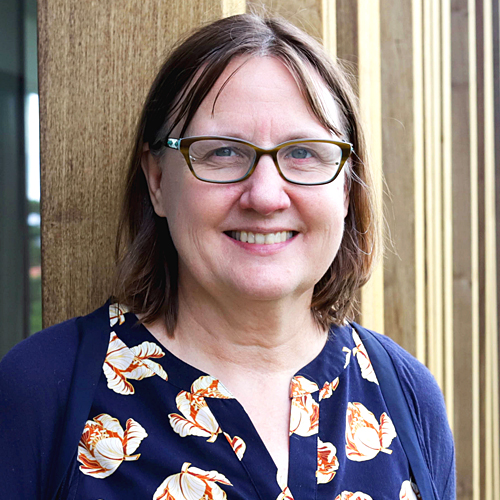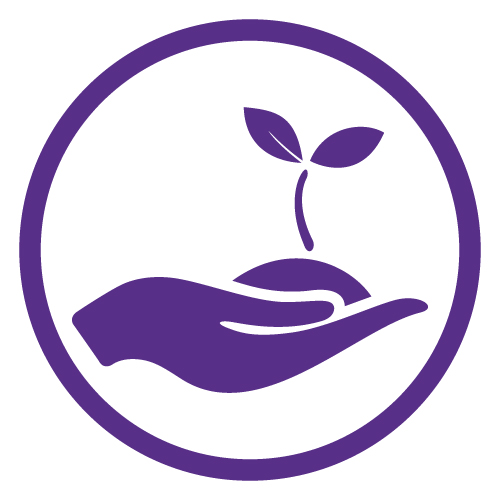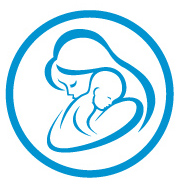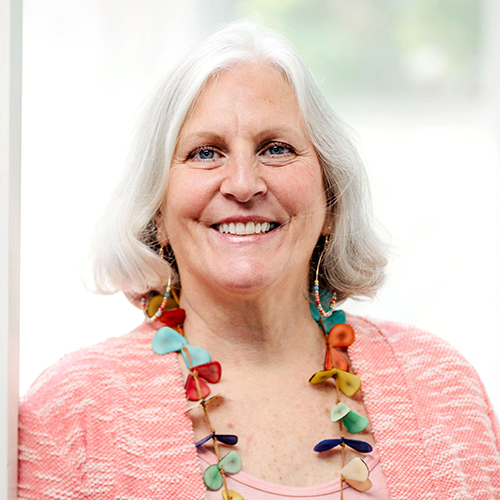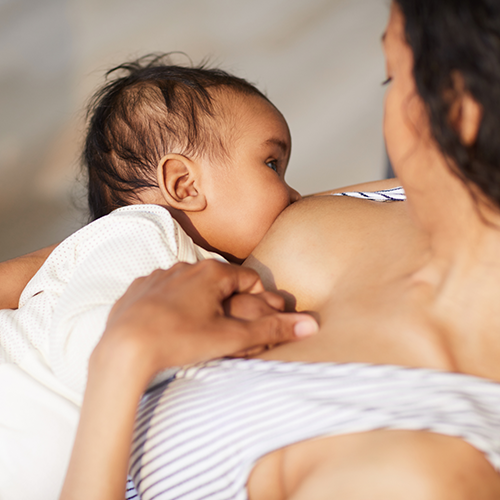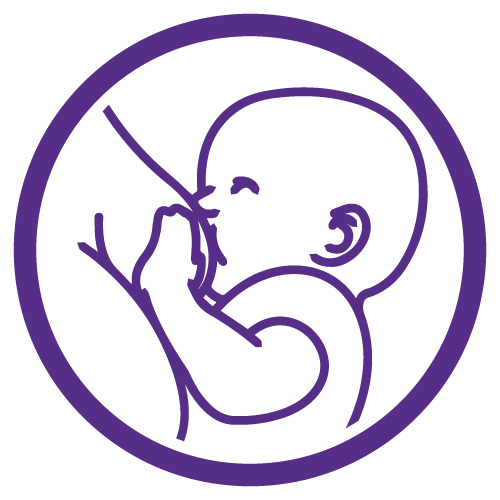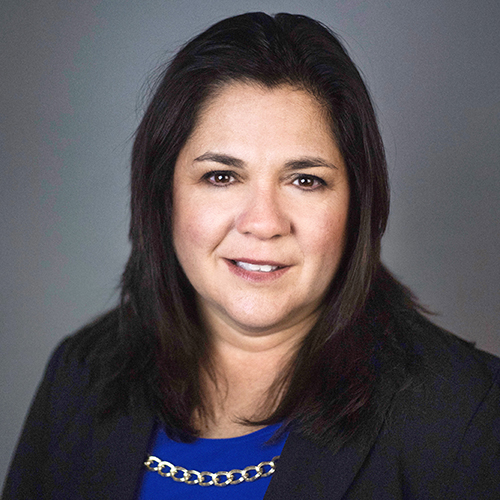 Lactation & Breastfeeding Online Course(s) & Continuing Education
Lactation & Breastfeeding Online Course(s) & Continuing Education
Access the latest clinical skills and research for Lactation & Breastfeeding for professional training. These Lactation & Breastfeeding online courses provide practice-changing skills and valuable perspectives from leading global experts. This Lactation & Breastfeeding education has been accredited for a variety of CEUs / CERPs and can be accessed on-demand, at your own pace.


Maureen Minchin is a medical historian whose 1970s experience of motherhood resulted in her second book, Food for Thought: a parent’s guide to food intolerance, recognized as ground breaking in its treatment of infant allergy. Her third book, Breastfeeding Matters, was declared a “milestone in the history of breastfeeding” by Prof JD Baum. For 35 years she has worked extensively in the area of infant nutrition, including for WHO, and UNICEF, and teaching health professionals in Australia and overseas. She was influential in the creation of IBLCE and BFHI, and a founding (and later Board) member of both ILCA and ALCA. Maureen has continued to work free of charge with families with both infant feeding and allergy problems. After a decade in eldercare, Maureen is getting back to writing, recently helping with the online infant feeding courses being developed by the UK’s University of York and the National HS-sponsored e-learning for health project. Her latest book, Milk Matters: Infant Feeding and Immune Disorder was published in 2015.
This presentation outlines a new understanding of why early infant feeding matters, generated by recent research into the microbiome and epigenetics as well as clinical and personal experience over decades. It focuses on allergy as an bilateral legacy which compounds through generations. Emphasis is on presenting symptoms and management in the breastfeeding family, although some infant formula issues are considered.. Maternal diet in pregnancy and lactation, and the effects of allergy on families, are all discussed.
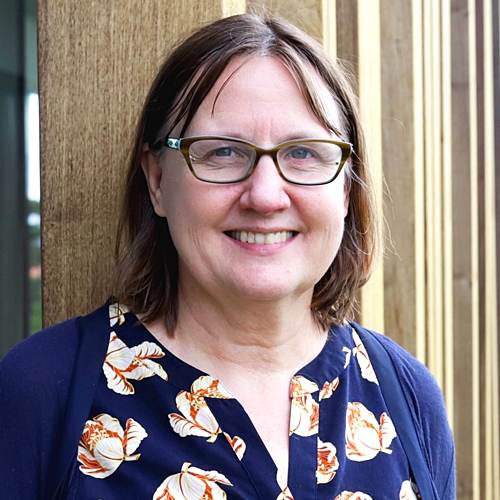

Ruth Lucas, PhD, RNC, CLS, received her Bachelor of Science in Nursing from George Mason University (1986) and her Doctor of Philosophy of Science (2011) from the University of Illinois at Chicago. Based on 20 years of supporting women and infants to initiate breastfeeding, her research focuses on the biobehavioral mechanisms of breastfeeding, such as breast and nipple pain. Dr. Lucas and her team conducted a pilot randomized control trial (RCT) as part of the Center for Accelerating Precision Pain Self- Management (CAPPS-M) (P20NR016605). The pilot RCT tested the feasibility, acceptability, and efficacy of a breastfeeding self-management (BSM) intervention for breast and nipple pain during breastfeeding and found the BSM intervention significantly reduced breast and nipple pain and is associated with pain sensitivity polymorphisms. Her published work describes management of pain during breastfeeding, a clinical indictor of infant breastfeeding behaviors, and a biomedical device to measure breastfeeding in real time.
Topic: Promoting Self-Management of Breast and Nipple Pain for Women During Breastfeeding - [View Abstract]
Infant feeding behavior is a complex neurodevelopment behavior. Infant feeding is compressed of infants’ latch and SuPPRT (sucking pressure pattern regulated over time) in both bottle and breastfeeding sessions. In preterm bottle feeding infants, the regulation of these two components is a measure of neurodevelopment. However, infants’ latch and SuPPRT in breastfeeding has not been explored. Dr. Lucas will review infants’ latch and SuPPRT during bottle and breastfeeding and explore how these differences make breastfeeding a more sensitive newborn neurodevelopmental measure. Finally, Dr. Lucas will propose why we should consider differences in infant latch and SuPPRT to be a neurodevelopmental infant measure.

View Details / Enroll

Infant Oral Assessment: Exploring Anatomy and Function Beyond the Frenulum

Melissa Cole, MS, IBCLC, RLC is a board certified lactation consultant, neonatal oral-motor assessment professional, and clinical herbalist in private practice. Melissa has been passionate about providing comprehensive, holistic lactation support and improving the level of clinical lactation skills for health professionals. She enjoys teaching, researching and writing about wellness and lactation-related topics. Melissa holds a bachelor of science degree in maternal child health and lactation consulting and her master’s work is in therapeutic, clinical herbalism. Melissa actively conducts research and collaborates with several lactation and health care professional associations. Before pursuing her current path, Melissa’s background was in education and cultural arts, which has served her well in her work as a lactation consultant and healthcare educator. She loves living, working and playing in the beautiful Pacific Northwest with her 3 children.
Topic: Beyond Fenugreek: An Individualized Approach to Dietary and Herbal Galactagogues - [View Abstract]
Topic: Beyond the Basics of Latch: Support Strategies for Helping Babies when the Basics Aren’t Enough - [View Abstract]
Topic: Common Infant Digestive Health Concerns and Useful Support Strategies - [View Abstract]
Topic: Connection and Care: Virtual Support for Tongue-Tied Infants - [View Abstract]
Topic: Feeding is Movement: Activities for Supporting Optimal Infant Oral Function - [View Abstract]
Topic: Infant Gut Health: Common Concerns and Useful Support Strategies - [View Abstract]
Topic: Infant Oral Assessment: Exploring Anatomy and Function Beyond the Frenulum - [View Abstract]
Topic: Low Milk Production Detective Work: Assessment and Care Plan Considerations - [View Abstract]
Topic: Nature’s Nurturers: Plant Medicine for Perinatal Mental Health - [View Abstract]
Topic: New Thoughts on Infant Pre and Post-Frenotomy Care - [View Abstract]
Topic: Placenta Medicine as a Galactogogue: Tradition or Trend? - [View Abstract]
Topic: Thinking Critically About the Use of Clinical Lactation Tools - [View Abstract]
Topic: Will It Hurt? Frenotomy Aftercare Strategies to Optimize Healing Outcomes for the Newborn - [View Abstract]
Is it a tongue tie? What else could be going on? Having a deeper understanding of the orofacial complex and functional oral motor patterns can help take your assessment techniques to the next level. Curious about jaws, tongues, palates, oral tone, suck patterns, and more? This presentation will focus on understanding the finer details and the bigger picture when it comes to infant oral assessment.
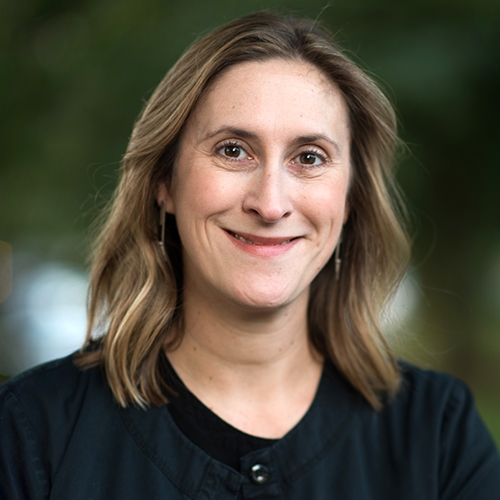
View Details / Enroll
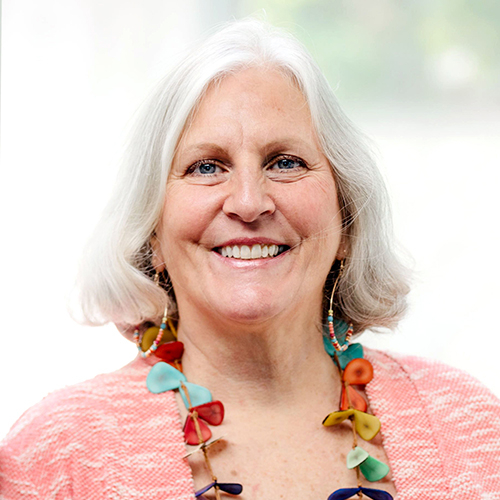

Dr. Hazelbaker has been a therapist in private practice for over 30 years. She specializes in cross-disciplinary treatment and to that end has taken training in several modalities to best assist her clients. She is a certified Craniosacral Therapist, a Lymph Drainage Therapy practitioner, a Tummy Time™ Trainer, a Haller Method practitioner, A Pre and Perinatal Psychology Educator, a Lactation Therapist Diplomate, an International Board Certified Lactation Consultant and a fellow of the International Lactation Consultant Association.
She earned her Master’s Degree from Pacific Oaks College (Human Development specializing in Human Lactation) and her doctorate from The Union Institute and University (Psychology, specializing in Energetic and Transformational healing.)
People recognize her as an expert on infant sucking issues caused by various structural problems like torticollis, plagiocephaly, brachycephaly and tissue shock-trauma. She invented the Hazelbaker™ FingerFeeder and the Infant Breastfeeding CranioSacral Protocol™ to assist in the resolution of this type of infant sucking dysfunction.
Topic: Cranial Nerves: A Critical Component of the Process of Breastfeeding - [View Abstract]
Topic: Creating Flow: Using Lymphatic Drainage Therapy for Breastfeeding Issues - [View Abstract]
Topic: Finger Feeding: What Do We Know? What Should We Know? - [View Abstract]
Topic: Gamechangers: New studies that will change the way we think about tongue-tie - [View Abstract]
Topic: Infant Trauma: Impact on Breastfeeding - [View Abstract]
Topic: The Faux Tie: When is a "Tongue-tie" NOT a Tongue-tie? - [View Abstract]
Topic: The Impact of Bodywork on Infant Breastfeeding - [View Abstract]
Topic: What Does Torticollis Have to do with Breastfeeding? - [View Abstract]
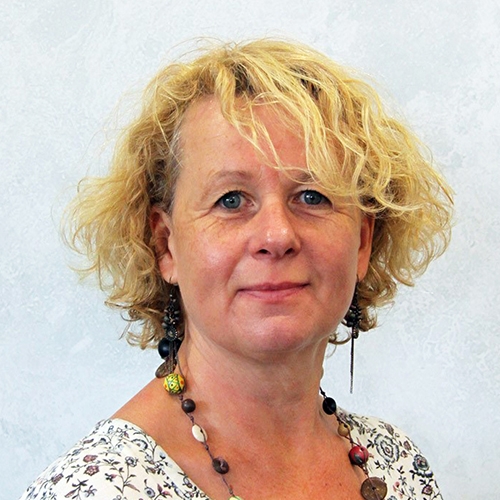
Influencing a Paradigm Shift in the Unicef UK Baby Friendly Initiative (BFI)

Fiona Dykes is Professor of Maternal and Infant Health and leads Maternal and Infant Nutrition and Nurture Group (MAINN), at University of Central Lancashire, Preston, UK. Fiona has a particular upon the global, socio-cultural and political influences upon infant and young child feeding practices; her methodological expertise is in ethnography and other qualitative research methods. Fiona is the Conference Convenor and Chair of the Scientific Review Committee for the MAINN Conference, a three day, international, peer reviewed event established in 2007 and held bi-annually in the UK and, more recently, on alternate years overseas (Sydney, Australia, Sweden and Florida). She is a member of the editorial board for Maternal and Child Nutrition. Fiona is author of Breastfeeding in Hospital: Mothers, Midwives and the Production Line (Routledge) and co-author, with Dr Tanya Cassidy of Banking on Milk: An ethnography of donor human milk relations (Routledge). She is also joint editor of several books including Infant and Young Child Feeding: Challenges to implementing a Global Strategy (Wiley-Blackwell) and Ethnographic Research in Maternal and Child Health (Routledge).
In this presentation, Fiona Dykes describes a program of research that has significantly contributed to a paradigm shift in the Unicef UK Baby Friendly Initiative (BFI). In 2013, Unicef UK BFI published a revised set of evidence-based standards for all maternity and children's services placing a particular emphasis on mother-infant relationship building rather than the previous specific emphasis on breastfeeding (Unicef UK 2013).
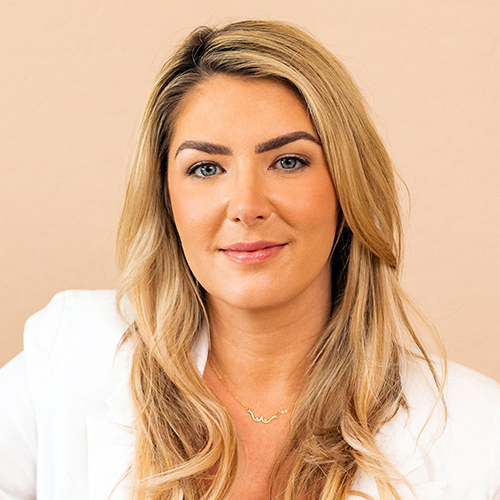

Jacqueline Kincer is the founder of Holistic Lactation where she runs a busy practice, manufacturers herbal supplements for lactation, and supports breastfeeding families worldwide. She's also the host of the podcast Breastfeeding Talk: Milk. Mindset. Motherhood. and creator of the online breastfeeding community, The Nurture Collective. Jacqueline's passion has been to create functional breastfeeding outcomes and expand access to lactation knowledge across the globe.
Topic: Inside the Infant Mouth: Oral Assessment & Function - [View Abstract]
Topic: Tongue Tied Untied: Creating Functional Breastfeeding Outcomes - [View Abstract]
In order to identify sucking dysfunction, it's important to first know what normal looks like. Being able to do a thorough oral assessment of an infant is a crucial skill for IBCLCs. The focus of this presentation is to discuss what to look for when performing an oral exam, as well as how to assess oral motor function as it relates to infant sucking skills. Knowing how the anatomy affects an infant's oral-motor skills is crucial to determining the cause of breast/chestfeeding problems and suggesting proper treatment.
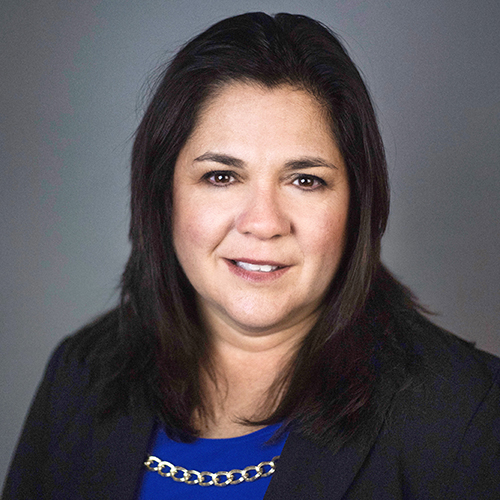

Annette Leary is a registered nurse with over 33 years of experience working in Maternal Child Health (pediatrics, postpartum, home health care and level 2 NICU). She became an IBCLC in 1995. She owns a private practice providing office, in home, and virtual visits at Orlando Lactation and Wellness. In 2022 she formed a collaborative company Baby B.L.I.S.S. : Central Florida Feeding Collaborative where she and her business partners help families prenatally, antepartum and post partum navigate the growth, development and feeding journey of their children. She began her craniosacral therapy training through the Upledger Institute in 2015, taking advanced maternal and pediatric specialty classes. Annette has found great improvement incorporating craniosacral therapy techniques with lactation consulting. Helping Families Latch onto Parenting has always been her mantra.
Topic: Where to Start: Creating a Lactation Care Plan for Complex Breastfeeding Cases - [View Abstract]
Lactation support may be time-limited when caring for multiple families with varying degrees of complexity and needs. Prioritizing between parents and within the individual cases, employing critical thinking skills, and identifying the chest/breastfeeding family’s needs is essential to efficient workflow. Competing priorities can be stressful and draining. Mindfulness empowers those providing care the clarity to prioritize needs and increase satisfaction for both family and lactation support team.
The presentation will consist of actual lactation scenarios varying in complexity and diverse work environments. Participants will interact via the chat box to triage cases, rank interventions and create a collaborative discipline list. We will end with a brief mindful activity.

View Details / Enroll

Interoception: Beyond the Homunculus....The Real Sixth Sense and Its Primary Function as Sensory Input to the Autonomic Nervous System

Michelle has been a pediatric neurodevelopmental Occupational therapist specializing in precrawling infants for over 26 years. She has specialty certifications and training in lactation, manual therapy, and pre and peri natal psychology. Michelle has specialized in optimal cranial nerve function and oral restrictions, with an emphasis on infant movement, innate biological imperatives and human potential, providing novel curriculums, support and resources for both professionals and parents. She enjoys collaborating and working in teams for babies and families going through the tethered oral tissues release process.
Topic: Breastfeeding and Cranial Nerve Dysfunction – the what, who and why of Cranial Nerve Dysfunction in the newborn to precrawling baby - [View Abstract]
Topic: Compensatory vs Novel Movements: 3 Keys for Babies With Tongue, Lip and Buccal Restrictions - [View Abstract]
Topic: Interoception: Beyond the Homunculus....The Real Sixth Sense and Its Primary Function as Sensory Input to the Autonomic Nervous System - [View Abstract]
Topic: The Vagus Nerve: Branchial Motor / Special Visceral Efferents: The Pharynx, Larynx, Soft Palate and one tiny tongue muscle - [View Abstract]
Topic: TummyTime!™ : A Therapeutic Strategy for Parents and Babies - [View Abstract]
Interoception is a term used to describe our nervous system's awareness of the sensations from the gastrointestinal and visceral system, as well as the primary sensory part/input to baby's Autonomic Nervous System. ANS function and regulation underlay all automatic processes of the body, from heart beat to breastfeeding and digestion function, as well as maintaining a calm state in order to engage in social interaction or to transition easily in and out of sleep. More simply put, interoception is "feelings from the body". In addition to visceral information, interoceptive pathways carry information related to affective touch, itch, temperature and pain and are delivered to a separate area of the brain, the insular cortex, which also contains a map of the body, similar to the well known homunculus. Interception plays a large role in dynamic equilibrium and autonomic regulation of tissues of the body. Interoceptive information and the processing is the basis of all important activity to optimize energy utilization. This system is often compromised in babies who present with complex oral dysfunction, tethered oral tissues, postural asymmetries, fussiness, gas, reflux or other dysregulation in function. How babies feel is mirrored in how they function, compromised function equals compromised interoceptive processing. This talk covers the basics of this system and practical clinical applications for precrawling babies to optimize neurodevelopment and breastfeeding abilities.

View Details / Enroll
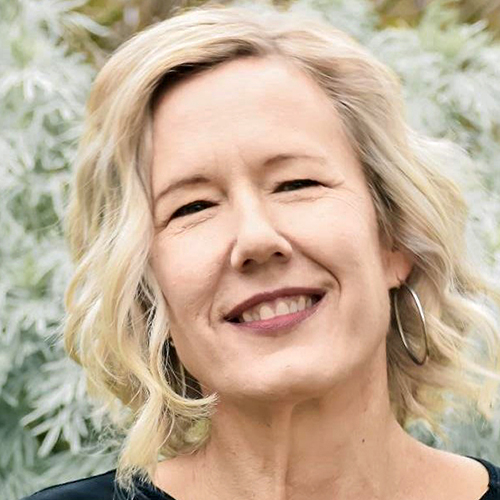

Dr. Gerner has been a Maternity and Pediatric Specialist in private practice for over 17 years with an additional focus on functional infant cranial work. She teaches other professionals to support breastfeeding across the USA and internationally. She is a wife, mother of 3 grown children, and lives in Northern CA with her husband and their 2 rescued dogs.
Topic: Introductions and Establishing the Value of Integration - [View Abstract]
Topic: Nitty Gritty Anatomy: The Cranium, Supporting Structure and the Muscle Layer - [View Abstract]
Topic: Tying It All Together- Consequences of Pathology and Ideal Collaboration - [View Abstract]
Breast is best! We all know that; however, often parent and child struggle so much at the beginning that breastfeeding either isn’t possible or the parent becomes discouraged and gives up. When feeding challenges occur, sometimes the problem is not with the mother’s technique, but rather with the baby himself- barriers within the alignment and tone of his body causing abnormal function and preventing normal breastfeeding. There can also be tethered oral tissues present (tongue or lip ties) causing even more dysfunction. This presentation focuses on: (1) why breastfeeding is best- nutritionally and neurologically; (2) The cause of imbalance- The birth process; (3) the importance of the integrative collaboration of therapists- i.e. the LC, DDS, chiropractor and/or cranial therapist.

It Takes a Village: Understanding the Role of and Integrating Extended Family in the 4th Trimester.

Rue Khosa, AKA The Boob Boss, is the owner/founder of The Perfect Push, a lactation and parenting wellness clinic in downtown Redmond. She is a board certified family nurse practitioner, lactation consultant and a THRIVE parenting educator. Rue was born and raised Zimbabwe, where family plays a critical role in supporting expectant and new parents. This type of communal caring, called “kugarira”, helps families prepare for a new baby both emotionally and physically and guides them through the often challenging newborn period. Rue created The Perfect Push to bring that experience to Seattle. Rue began her women’s health career as a labor and delivery nurse over 10 years ago, at Washington Hospital Centre in DC. She received her graduate degree from Georgetown University, and her undergraduate degree from the University of Maryland, Baltimore. Prior to opening her private practice, Rue was a Teaching Associate in the Department of Family Medicine at the University of Washington’s School of Medicine and an Adjunct Clinical Faculty at Northwest University Buntain School of Nursing. In July 2019, Rue was commissioned by the Mayor to the City of Redmond’s Human Services Commission. In February 2020, Rue was invited to join Washington State Hospital Association's Safe Delivery Roadmap Commission. She sits on their Birth Equity task force working on program development. She also sits on the board of No More Under, a non profit organization committed to drowning prevention and awareness. Outside of redefining the childbirth and parenting experience, Rue is a mother of two young boys with a third on the way. She lives in Redmond, WA with her husband, mother and boys.
American culture values self-sufficiency and celebrates self-sacrifice in the name of success. The idea of community and communal living is fast becoming a thing of the past. Children graduate, go off to college, start careers and families seldom looking back. Moving back home or moving back to one’s old neighborhood is now unheard of. The result has been the rise of the nuclear family and the fall of the generational knowledge that supported breastfeeding and identified new moms at risk of perinatal mood and anxiety disorders.
This talk will explore the importance of restoring and improving community and peer breastfeeding support and identifying barriers to success. Lactation providers will learn how to identify importance and the role extended family and how to include them without violating our patients privacy. Attendees will gain insight on health disparities and the historical significance of breastfeeding in communities of colors. Last but not least, the talk will highlight the importance of providing culturally sensitive and appropriate care.

View Details / Enroll

View Details / Enroll





